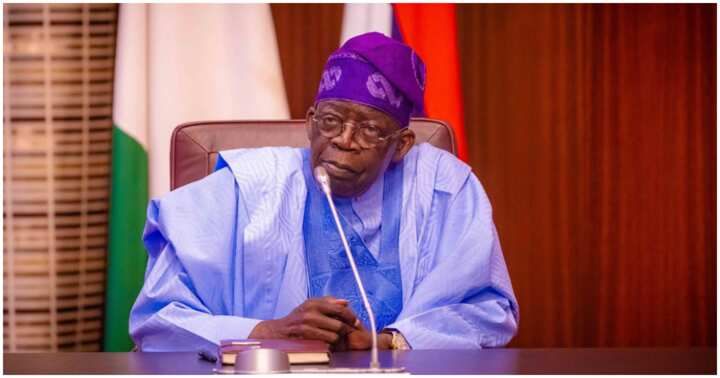Nigeria’s President, Bola Tinubu, has disclosed plans of his government to spend ₦75 billion to fund 75 manufacturing companies in the country between July 2023 to March 2024 to boost production.
The president made this known during his nationwide broadcast on Monday evening.
Tinubu said the aim is to strengthen the capacity of the manufacturing sector to create more jobs and make significant contributions to the nation’s GDP.
He said the fund will be given to the 75 enterprises as a credit at 9 per cent per annum with a maximum of 60 months of repayment for long-term loans and 12 months for working capital.
His words: “To strengthen the manufacturing sector, increase its capacity to expand, and create good-paying jobs, we are going to spend N75 billion between July 2023 and March 2024.
“Our objective is to fund 75 enterprises with great potential to kick-start sustainable economic growth, accelerate structural transformation and improve productivity. Each of the 75 manufacturing enterprises will be able to access N1 billion credit at 9% per annum with a maximum of 60 months repayment for long-term loans and 12 months for working capital.”
The Nigerian president listed this as part of his administration’s plans to reform the economy and create jobs following the removal of subsidy on petrol which has led to a sharp increase in the price of petrol and the general cost of things across the country.
He said the government has been able to save over ₦1 trillion since the subsidy regime ended.
Recall that President Tinubu had during his inaugural address on May 29, announced that the subsidy on petrol is gone, leading to an immediate hike in the price of the commodity and a rise in the cost of things generally.
The president said the decision to end fuel subsidies was a tough one given the impact on Nigerians but it had to be done for the sake of the future of the country.
According to him, the subsidy payments were benefiting a few elites who held the economy to ransom and had to stop.
On the measures to cushion the effects of the subsidy removal on Nigerians, the president said the Federal Government is already working closely with “states and local governments to implement interventions that will cushion the pains of our people across socio-economic brackets.”
“Earlier this month, I signed four Executive Orders in keeping with my electoral promise to address unfriendly fiscal policies and multiple taxes that are stifling the business environment. These Executive Orders on suspension and deferred commencement of some taxes will provide the necessary buffers and headroom to businesses in the manufacturing sector to continue to thrive and expand.”
The president also stated that his administration recognises the importance of micro, small, and medium-sized enterprises (MSMEs) and the informal sector as drivers of growth and would energise the sector with N125 billion.
“Out of the sum, we will spend N50 billion on Conditional Grants to 1 million nano businesses between now and March 2024. Our target is to give N50,000 each to 1,300 nano business owners in each of the 774 local governments across the country.
“Ultimately, this programme will further drive financial inclusion by onboarding beneficiaries into the formal banking system. In like manner, we will fund 100,000 MSMEs and start-ups with N75 billion.
“Under this scheme, each enterprise promoter will be able to get between N500,000 to N1 million at 9% interest per annum and a repayment period of 36 months,” he stated.
READ ALSO: CBN Says Subsidy Removal, Naira Devaluation Will Fuel Inflation Rate
Addressing Food Crisis
The Nigerian leader further said that to tackle food crisis, he has ordered the “release of 200,000 Metric Tonnes of grains from strategic reserves to households across the 36 states and FCT to moderate prices.”
“We are also providing 225,000 metric tonnes of fertilizer, seedlings and other inputs to farmers who are committed to our food security agenda.”
He said the Federal Government’s plan to support the cultivation of 500,000 hectares of farmland and all-year-round farming practice remains on course, adding that ₦200 billion out of the ₦500 billion approved by the National Assembly for palliatives will be disbursed as follows:
“N50 billion each to be invested in the cultivation of 150,000 hectares of rice and maize.
“N50 billion each will also be earmarked to cultivate 100,000 hectares of wheat and cassava.”
“This expansive agricultural programme will be implemented targeting small-holder farmers and leveraging large-scale private sector players in the agric business with strong performance records,” he stated.
Victor Ezeja is a passionate journalist with seven years of experience writing on economy, politics and energy. He holds a Master's degree in Mass Communication.



















Follow Us